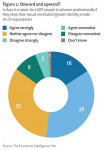Asia hosts the world's cheapest and most expensive citiesaccording to Economist Intelligence Unit
Asia: Home to the cheapest and most expensive
The impact on the ranking of Asian cities of rebasing the survey to February 2009 exchange rates is very mixed, as the region plays host to countries with the most and the least expensive cost of living in the survey. Cities in Australia and New Zealand have seen dramatic falls of between 21 and 25 index points. Conversely a stronger yen now means that the Japanese cities of Tokyo and Osaka have become the most expensive cities in our survey.
The Chinese renminbi is tightly linked to the US dollar, which means that the relative cost of living in Chinese cities has risen as the currencies of other countries fall. Shanghai, with a cost of living that is only 2% cheaper than New York, is now more expensive than Sydney (Australia), which is 8% cheaper.
Asia is home to many of the least expensive cities in the world, supplying five of the ten cheapest locations in the survey, four of which hail from the Indian subcontinent. Manila (Philippines), in 126th position, joins Kathmandu, New Delhi, Mumbai and Karachi. The cost of living in Manila is half that of New York, whereas that in Karachi, the cheapest city in the survey, is just over one-third of that of New York.
Global round-up
Oslo (Norway), previously the most expensive city, has fallen to fifth place, below Paris (France) and Copenhagen (Denmark). London (UK), originally ranked eighth, has slid dramatically in line with a weak sterling to joint 27th position, below New York (US) for the first time since 2002. Reykjavik (Iceland), one of the early casualties of the current global malaise, was the fifth most expensive city last year. It fell to 39th using exchange rates from September 2008, but by February this year had fallen to 67th in the ranking.
Jon Copestake, editor of the report, comments: "Two factors drive the relative cost of living: local prices and exchange rates. Normally our ranking of cities by cost of living is relatively stable, but in the current global climate changes in exchange rates have significantly altered our assessment of the most and least expensive cities."
The main changes in the ranking, achieved by applying February 2009 exchange rates to the original price data collated in September 2008, occur among the most expensive cities. The decline of European currencies, most notably the euro, sterling and the Norwegian krone, has driven a significant weakening in the relative cost of living for many European cities.
West European cities still dominate the top ten worldwide, with just three cities (Tokyo, Osaka and Singapore) from outside Europe. Nevertheless, the cost of living gap has closed. The strong US dollar has meant that cities in the United States, along with any country that pegs its currency to the dollar, have jumped in the ranking. New York, Los Angeles and Chicago have risen from joint 39th to joint 23rd position, and Hong Kong has risen by 17 places to 11th in the ranking.
Much less affected are the lower-cost locations in the world. The cheapest cities in the survey remain predominantly Asian, with four of the bottom five hailing from the Indian subcontinent: Kathmandu (Nepal), 128th; New Delhi and Mumbai (India), 129th and 130th respectively; and Karachi (Pakistan), 132nd.
NOTES TO EDITORS:
This survey compares the original findings of the September 2008 cost of living survey to those at February 2009 exchange rates. For the purposes of this release it is assumed that local prices have not moved between September, when the survey took place, and February when the new exchange rates were applied.
The customisation of exchange rates is a standard feature of the worldwide cost of living survey to account for fluctuations like those seen in recent months.
Worldwide Cost of Living, the bi-annual Economist Intelligence Unit survey, compares prices and products in 140 cities around the world. Its purpose is to provide companies with an unbiased and independent guide from which allowances can be calculated for executives and their families being sent overseas.
The Economist Intelligence Unit can calculate indices based on any one of the cities. The data quoted here used New York as a base index of 100 for comparisons.
About the Economist Intelligence Unit
The Economist Intelligence Unit is the business information arm of The Economist Group, publisher of The Economist. Through our global network of over 100 in-house editors and economists, and a global network of over 700 contributors, we continuously assess and forecast political, economic and business conditions in more than 200 countries. As the world's leading provider of country intelligence, we help executives make better business decisions by providing timely, reliable and impartial analysis on worldwide market trends and business strategies.
More than 500,000 customers in corporations, banks, universities and government institutions rely on our intelligence. In order to meet the needs of executives like these, we provide a full range of print and electronic delivery channels and have developed a portfolio of leading electronic services. These include: eiu.com, a virtual library with access to all of our publications, and store.eiu.com, our transactional site; viewswire.com, which provides daily and operational intelligence on countries worldwide; Executive Services, which provides insight and analysis on global business and management trends; and Data Services, a portfolio of economic and market indicators and forecasts.
Economist Intelligence Unit Worldwide Cost Of Living 2009
This full listing is for journalists' information only. © 2009 The Economist Intelligence Unit Limited. You may report on it but you may not reproduce all or a substantial part of the table.
웹사이트: http://www.eiu.com
연락처
Joanne McKenna
Press Liaison
Economist Intelligence Unit
26 Red Lion Square
London
WC1R 4HQ
UK
Direct: +44 (0) 20 7576 8188
Sales: +44 (0) 20 7576 8181
Switchboard: +44 (0) 20 7576 8000
email: 이메일 보내기
이 보도자료는 Economist Intelligence Unit가(이) 작성해 뉴스와이어 서비스를 통해 배포한 뉴스입니다. 뉴스와이어는 편집 가이드라인을 준수합니다.




